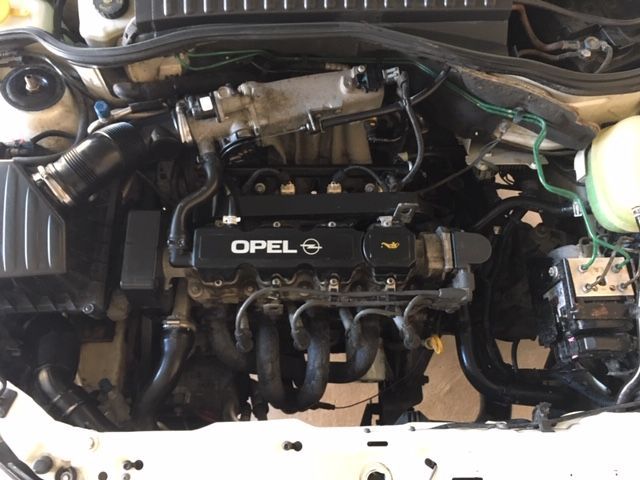Discover Competitive Opel Corsa 1.4 Engine Price Options at Vehicle Components Market
Discover Competitive Opel Corsa 1.4 Engine Price Options at Vehicle Components Market
Blog Article
Engine Buying Professional Tips on Picking the Right Engine for Your Details Requirements
Picking the right engine for your details demands involves a complex interplay of factors that go beyond simple horse power numbers. By delving into the details of power versus efficiency, examining gas scores, and budgeting for lasting prices, one can really optimize their engine option.
Power Vs. Effectiveness: Locating the Balance
When choosing an engine, it is crucial to strike a balance in between power and efficiency to meet your details needs successfully. Power describes the engine's ability to create power for propulsion, determining aspects like velocity, lugging capability, and overall efficiency - Opel Corsa 1.4 Engine Price. On the various other hand, performance connects to how well the engine utilizes fuel to create power, impacting variables such as fuel economic climate and ecological kindness
Accomplishing the ideal balance in between power and efficiency is necessary due to the fact that an engine that is also effective may consume excessive gas, bring about higher operating expense and unneeded stress on the atmosphere. On the other hand, an engine that focuses on performance over power might lead to slow performance, specifically popular scenarios like lugging heavy loads or driving uphill.
To make an educated decision, think about aspects such as your regular driving conditions, the designated use the vehicle, and your personal choices. By examining your top priorities and needs, you can select an engine that strikes the ideal equilibrium between power and performance, making certain optimum efficiency while decreasing environmental impact and operating prices.
Understanding Engine Size and Type
To better refine the option process of an engine that strikes the ideal equilibrium between power and effectiveness, it is essential to dive right into the details of understanding engine size and kind. Engine size refers to the complete volume of air and gas that can be pressed through the engine cyndrical tubes.
Usual engine types consist of inline engines, V engines, and rotating engines, each with its unique advantages and downsides. Comprehending the interplay in between engine size and kind is crucial in selecting an engine that straightens with your details requirements and priorities, whether it be power, performance, or an equilibrium of both.

Consider Your Automobile's Needs
If you are looking for an engine for a sturdy truck that will certainly be used for towing, you will certainly need a powerful engine with high torque capacities. On the various other hand, if you are selecting an engine for a small vehicle mainly utilized for city travelling, fuel efficiency might be a much more vital factor to consider.
Additionally, the surface on which the vehicle will mainly operate must affect your engine choice. If you regularly drive in mountainous or hilly locations, a robust engine with great climbing power will be required. Conversely, for level surfaces, a much more fuel-efficient engine might suffice. By aligning the engine specs with your car's demands, you can guarantee that your car operates effectively and meets your efficiency expectations.
Reviewing Gas Effectiveness Scores
Examining gas efficiency scores is a vital aspect of selecting the best engine for your vehicle, ensuring price financial savings and environmental sustainability. Fuel efficiency scores, normally measured in miles per gallon (MPG) for fuel engines or kilowatt-hours per 100 miles (kWh/100 miles) for electric engines, suggest how far a vehicle can travel on a particular amount of gas or electricity. Higher MPG or reduced kWh/100 miles worths signify more effective engines, equating to reduced gas costs and lower carbon emissions.
When evaluating fuel efficiency ratings, consider your driving behaviors and needs. If you commute fars away daily, an extremely fuel-efficient engine can result in substantial financial savings with time. Additionally, contrast different engine alternatives within the exact same car course to identify the most affordable choice. Variables such as engine dimension, weight, the rules of aerodynamics, and crossbreed or electric capabilities can all influence fuel Discover More Here efficiency.
Budgeting for Long-Term Prices
Tactically preparing for lasting expenses is vital when selecting an engine, guaranteeing financial sustainability over the automobile's lifespan. While the preliminary purchase cost of an engine is a substantial aspect, it is vital to think about the long-term prices linked with upkeep, repair work, and fuel intake. Selecting an extra fuel-efficient engine may have a higher in advance expense however can result in substantial cost savings over time. Normal maintenance, such as oil modifications, filter replacements, and tune-ups, is important to maintain the engine running smoothly and efficiently, decreasing the threat of costly repair services down the line.
Furthermore, researching the schedule and cost of replacement parts for the selected engine is crucial in spending plan planning. By carefully budgeting for these long-term costs and next page factoring them right into the decision-making process, people can pick an engine that not just meets their prompt needs yet likewise stays affordable throughout its life expectancy.
Verdict
In conclusion, choosing the ideal engine for your specific needs requires stabilizing power browse around this web-site and performance, recognizing engine dimension and type, considering your car's requirements, examining fuel efficiency ratings, and budgeting for long-lasting costs. By very carefully considering these elements, you can make certain that you choose an engine that satisfies your demands and provides optimal performance for your car.
To additionally improve the selection process of an engine that strikes the ideal balance in between power and effectiveness, it is essential to delve right into the complexities of recognizing engine dimension and kind. Engine size refers to the complete quantity of air and fuel that can be pushed via the engine cylinders. Common engine types include inline engines, V engines, and rotating engines, each with its unique advantages and drawbacks. Comprehending the interaction between engine size and kind is crucial in picking an engine that lines up with your certain requirements and concerns, whether it be power, efficiency, or a balance of both.

Report this page